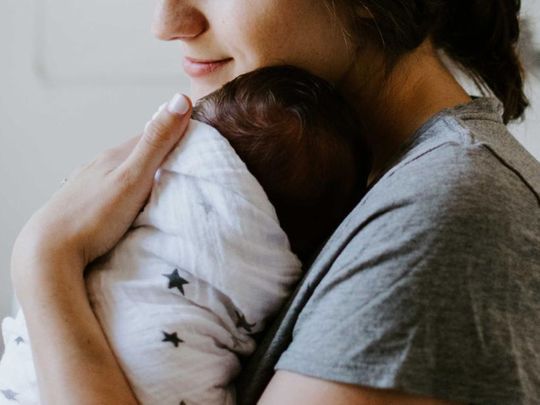
As the UAE’s Ministry of Health and Prevention (MoHAP) joins other countries across the globe in marking World Breastfeeding Week - held every year from 1-7 August – UAE doctors are keen to remind women of the importance of breastfeeding for infant health, especially during the pandemic.
“With limited studies so far, there is no evidence showing that the virus can be carried or passed on in breastmilk,” says Dr Usha Sethi, Specialist Gynecologist, Aster Clinic, Tecom. “The well-recognised benefits of breastfeeding and the protection it offers to babies outweigh any potential risks of the transmission of coronavirus through breastmilk.”
Benefits of breastfeeding vastly outweigh the coronavirus risk
This is in line with an appeal made by the World Health Organisation (WHO) on Tuesday 4 August, emphasizing the protective properties of a mother’s milk for both baby and mother, which it believes vastly outweighs any risk from the coronavirus pandemic.
“WHO has been very clear in its recommendations to say absolutely breastfeeding should continue,” said Dr Laurence Grummer-Strawn, head of the World Health Organization’s Food and Nutrition Action in Health Systems unit, in a report by the United Nations. “We have never documented, anywhere around the world, any [COVID-19] transmission through breastmilk.”
Having tested the breastmilk of “many” mothers around the world in a variety of studies, the UN report states that although a few samples had contained the virus, “when they followed up to see whether the virus was actually viable and could be infective, they could not find any actual infective virus”.
Breastmilk’s power against infectious diseases
Exclusive breastfeeding for six months has well documented benefits for both the child and mother, including the fact that breastmilk is particularly effective against infectious diseases, because it strengthens the immune system by directly transferring antibodies from the mother.
“Breastfeeding provides benefits for the baby during the time of breastfeeding, including protection against diarrhoea, against respiratory infections, against obesity – childhood obesity later on – and as children get older, protection against leukaemia,” said Dr Grummer-Strawn.
These benefits are equally effective whether the milk is fed directly or from a bottle after being expressed with a breast pump. Breastfeeding also protects the mother against breast cancer, ovarian cancer, and Type 2 diabetes.
This is one of the reasons why skin-to-skin during ‘the golden hour’ after birth is so important, as it has been shown to help the production of hormones that promote breastfeeding, and why even COVID-positive mothers should ‘room-in’ with their babies quickly, as “the risks of transmission of the COVID-19 virus from a COVID-positive mother to her baby seem to be extremely low”, added Dr. Grummer-Strawn in the UN report.
Breastfeeding in public areas during the pandemic
Although breastfeeding is a natural process that has many benefits, it is not always easy to establish without help, and one of the issues facing new mothers during the pandemic is reduced access to breastfeeding support and lactation counselling – either because the resources have been diverted elsewhere, or because the mother does not feel comfortable to be out in public because of the pandemic.
But, contrary to what breastfeeding mothers may think, being out and feeding your baby in public may actually be beneficial, says Amy Vogelaar, a UAE-based International Board Certified Lactation Consultant and founder of parenting support service. Love Parenting UAE. “Regarding breastfeeding in public during the pandemic, of course you want to be careful about where you are and what you are exposing baby to," says Vogelaar. “But when we breastfeed, our breasts automatically start making antibodies to any pathogen that baby has been exposed to, so it may be that breastfeeding in the areas where your baby may be exposed to the virus will be beneficial.
When you breastfeed, you automatically start making antibodies to any pathogen that baby has been exposed to, so it may be that breastfeeding in areas where your baby may be exposed to the virus could be beneficial.
“We often recommend breastfeeding at nursery before drop off or pick up in order to help fend off the many bugs and germs babies and toddlers are exposed to at child care. So if you are going to have babies out in public, and we know they are not going to be wearing masks, I would say breastfeeding may be the safest thing for them to do!”
If you are in the UAE and are struggling to get breastfeeding established, or would like more information on ways to prepare for the most successful breastfeeding journey possible, we have gathered a list of places to get breastfeeding support in the UAE (either online or in-person, depending on your comfort level).
Breastfeeding if you have COVID symptoms or are COVID-19 positive
The main risk of breastfeeding is close contact between you and your baby, says Aster Clinic’s Dr Sethi, “as if you cough or sneeze, this could contain droplets which are infected with the virus, leading to infection of the baby.”
To decide breastfeeding or express breast milk do depends upon your and baby’s health condition, so it is recommended to consult with your doctor. However you feed your baby, the following precautions are advised:
- Wash your hands before touching your baby, breast pump or bottles
- Try to avoid coughing or sneezing on your baby while feeding at the breast or from a bottle
- Consider wearing a mask or face covering while feeding
- Follow recommendations for pump/bottle cleaning after each use
- Consider asking someone who is well to feed your expressed breast milk or formula milk to your baby
If you have symptoms and you decide to pump breastmilk:
- You should have your own dedicated pump
- Wash your hands well before touching the pump
- Follow the correct cleaning direction of the pump after each use
You can store pumped milk in the fridge for up to three days and in the freezer for up to six months.








